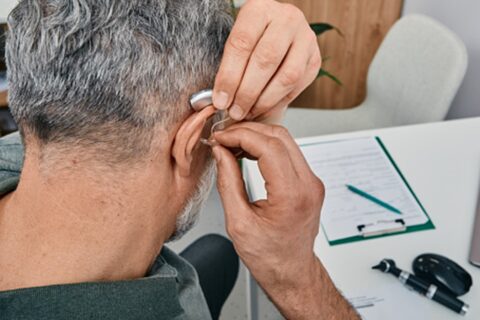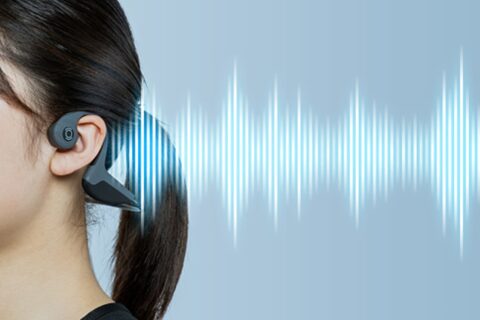Degrees of Hearing Loss
Degrees of Hearing Loss
Hearing loss is a common concern, especially among adults, and particularly among older adults. Approximately 15% of American adults aged 18 and over report some trouble hearing, and almost half the people in the United States older than age 65 have some degree of hearing loss. Hearing loss can range from mild to profound, as determined by the number of decibels that you can no longer hear.
Sound is measured in decibels (dB). The lower the decibels, the quieter the sound. As examples, a whisper is about 20 dB, normal conversation is about 60 dB, and a chainsaw or jackhammer is about 130 dB. Someone who can no longer hear a whisper has lost about 20 dB of hearing ability, indicating mild hearing loss. Someone who can no longer hear a chainsaw has lost about 130 dB of hearing ability, indicating severe hearing loss.
Mild Hearing Loss
Mild hearing loss is marked by a loss of 26-40 dB of hearing ability. A person experiencing mild hearing loss may have trouble hearing the hum of a refrigerator or quiet sounds in a library. At this level, a person may not even realize they have hearing loss.
Moderate Hearing Loss
Moderate hearing loss is marked by a loss of 41-55 dB of hearing ability. A person experiencing moderate hearing loss may have trouble hearing normal sounds in a quiet neighborhood or coffee percolating.
Moderate to Severe Hearing Loss
Moderate to severe hearing loss is marked by a loss of 56-70 dB of hearing ability. At this level, a person can recognize that they have hearing loss and it often impacts their daily life. A person experiencing moderate to severe hearing loss may have trouble hearing normal conversation, a washing machine, or traffic.
Severe Hearing Loss
Severe hearing loss is marked by a loss of 71-90 dB of hearing ability. A person experiencing severe hearing loss may have trouble hearing television, a garbage disposal, and shouting.
Profound Hearing Loss
Profound hearing loss is marked by a loss of 91-100 dB of hearing ability. At this level, a person mostly hears silence, even when surrounded by loud noise. A person experiencing severe hearing loss may have trouble hearing a hair dryer, a lawnmower, factory machines, and power tools. They can still hear extremely loud sounds, such as fireworks and gun shots.
Treatment for Hearing Loss
Untreated hearing loss can affect a person’s quality of life, as the inability to hear clearly can lead to frustration, sadness, depression, and anxiety. In some cases, it can negatively affect relationships with family and friends.
When you visit the Florida Gulf Coast Hearing Center, your audiologist will perform a thorough ear examination of the entire ear, including the outer ear, ear canal, eardrum, and middle ear to ensure there’s no underlying cause of your hearing loss that might require medical attention. Then you’ll undergo a rigorous diagnostic hearing evaluation to assess the sensitivity of your hearing at different frequencies. Depending on these findings, your audiologist will recommend appropriate treatment options.
Depending on the cause and severity of hearing loss, treatments can include removal of ear wax or foreign objects, treating an infection with antibiotics, surgery, hearing aids, cochlear implants and a combination of speech therapy or assistive listening devices.
Read more about the different types of treatment here.


